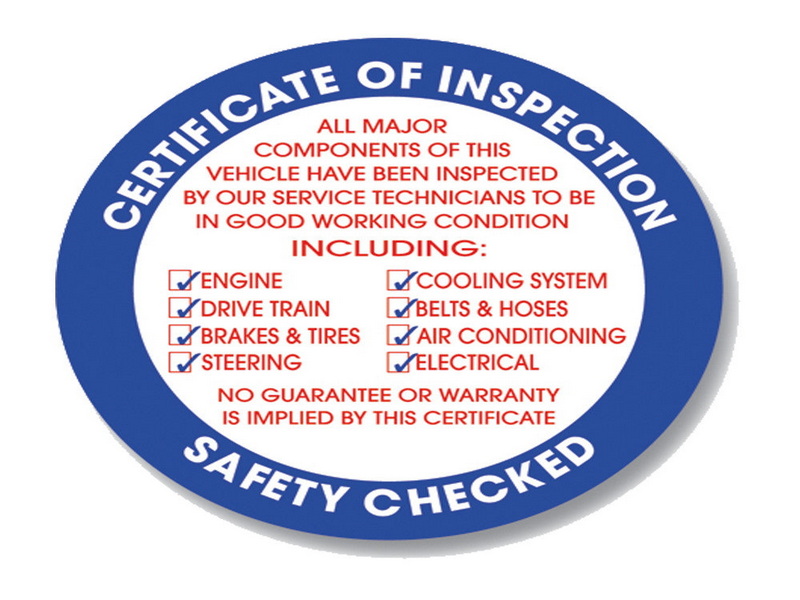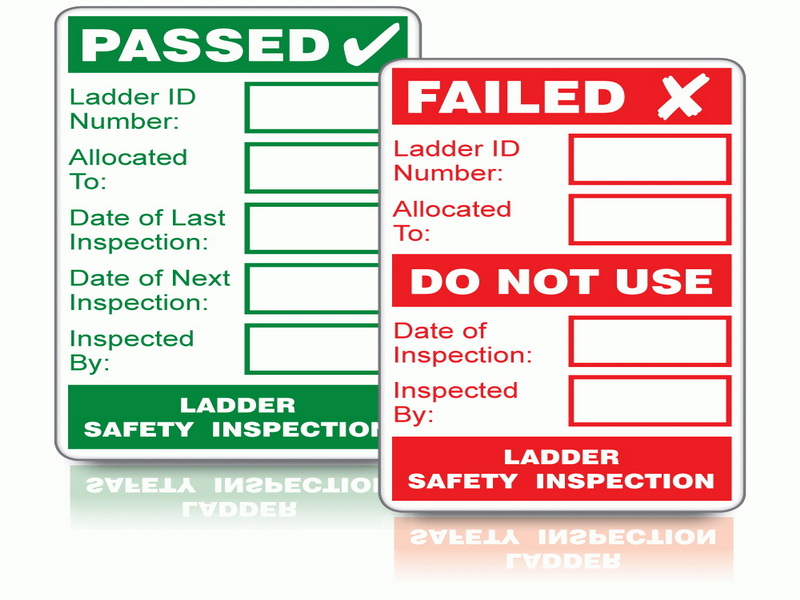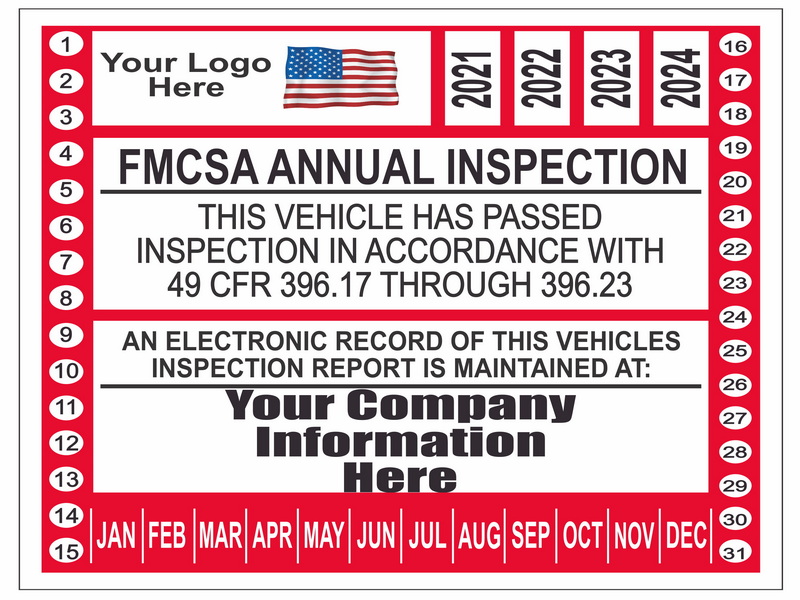Content Menu
● Understanding Inspection Stickers
● The Role of Inspection Stickers in Vehicle Registration
● Consequences of Expired Inspection Stickers
● The Importance of Regular Inspections
● The Relationship Between Inspection Stickers and Insurance
● Conclusion
● Frequently Asked Questions and Answers
>> 1. What happens if I drive with an expired inspection sticker?
>> 2. How often do I need to get my vehicle inspected?
>> 3. Can I register my vehicle without a valid inspection sticker?
>> 4. How do inspection stickers affect my car insurance?
>> 5. What should I do if my vehicle fails the inspection?
Vehicle registration is a crucial aspect of vehicle ownership, ensuring that vehicles on the road meet safety and environmental standards. One of the key components of vehicle registration in many jurisdictions is the inspection sticker. This article explores the relationship between inspection stickers and vehicle registration, detailing how they impact the registration process, the implications of expired stickers, and the overall importance of inspections in maintaining road safety.

Understanding Inspection Stickers
Inspection stickers are official labels affixed to vehicles to indicate that they have passed a safety and/or emissions inspection. These stickers serve as proof that a vehicle has been evaluated for compliance with state or local regulations. The inspection process typically involves checking various components of the vehicle, including brakes, lights, tires, and emissions systems, to ensure they are functioning correctly and meet safety standards.
The requirements for inspections and the issuance of stickers can vary significantly from one state or region to another. Some areas may require annual inspections, while others may have biennial or even less frequent requirements. The inspection sticker is usually placed on the windshield or another visible area of the vehicle, making it easy for law enforcement and regulatory agencies to verify compliance.
The Role of Inspection Stickers in Vehicle Registration
Inspection stickers play a vital role in the vehicle registration process. In many states, a valid inspection sticker is a prerequisite for registering a vehicle. This means that before a vehicle can be registered, it must first pass the required inspection and display a current sticker. The rationale behind this requirement is straightforward: ensuring that only safe and environmentally compliant vehicles are allowed on the road.
When a vehicle owner attempts to register their vehicle, they may be required to present proof of a valid inspection sticker. This proof can take the form of the sticker itself or a Vehicle Inspection Report (VIR) that details the results of the inspection. If the vehicle does not have a valid sticker, the registration process may be delayed or denied until the necessary inspection is completed.
Consequences of Expired Inspection Stickers
Driving with an expired inspection sticker can lead to several consequences, both legal and practical. Most jurisdictions impose fines or penalties for operating a vehicle without a valid inspection sticker. These fines can vary widely, but they often increase with repeated offenses. In addition to financial penalties, drivers may also face points on their driving record, which can lead to higher insurance premiums and other repercussions.
Moreover, an expired inspection sticker can complicate the vehicle registration process. If a vehicle owner attempts to register their vehicle with an expired sticker, they may be required to complete a new inspection before they can proceed with registration. This can lead to additional costs and delays, particularly if the vehicle requires repairs to pass the inspection.

The Importance of Regular Inspections
Regular inspections are essential for maintaining vehicle safety and performance. They help identify potential issues before they become serious problems, ensuring that vehicles remain roadworthy. By requiring inspection stickers as part of the registration process, states encourage vehicle owners to prioritize maintenance and safety.
Inspections can uncover a range of issues, from minor problems like worn brake pads to major concerns such as engine malfunctions or emissions failures. Addressing these issues promptly can prevent accidents, reduce the risk of breakdowns, and ultimately save vehicle owners money in the long run. Furthermore, regular inspections contribute to overall road safety, benefiting all drivers and pedestrians.
The Relationship Between Inspection Stickers and Insurance
In many cases, insurance companies may consider the status of a vehicle's inspection sticker when determining coverage and premiums. A valid inspection sticker can indicate that a vehicle is well-maintained and safe to drive, which may lead to lower insurance rates. Conversely, a vehicle with an expired sticker may be viewed as a higher risk, potentially resulting in increased premiums or difficulty obtaining coverage.
Additionally, some insurance policies may require proof of a valid inspection sticker as part of their terms. Failing to maintain a current sticker could lead to complications in the event of a claim, as insurers may question the vehicle's roadworthiness at the time of the incident.
Conclusion
Inspection stickers are more than just a formality; they are a critical component of vehicle registration and road safety. By ensuring that vehicles meet safety and environmental standards, inspection stickers help protect drivers, passengers, and pedestrians alike. The relationship between inspection stickers and vehicle registration underscores the importance of regular vehicle maintenance and compliance with local regulations.
Vehicle owners should be proactive in ensuring their vehicles are inspected regularly and that they maintain valid inspection stickers. This not only helps avoid legal penalties but also contributes to safer roads for everyone. As regulations continue to evolve, staying informed about inspection requirements and their implications for vehicle registration will be essential for all vehicle owners.

Frequently Asked Questions and Answers
1. What happens if I drive with an expired inspection sticker?
Driving with an expired inspection sticker can result in fines, penalties, and points on your driving record. Additionally, you may be required to complete a new inspection before you can register your vehicle.
2. How often do I need to get my vehicle inspected?
The frequency of vehicle inspections varies by state. Some states require annual inspections, while others may have biennial or less frequent requirements. Check your local regulations for specific details.
3. Can I register my vehicle without a valid inspection sticker?
In most cases, you cannot register your vehicle without a valid inspection sticker. You will need to complete the inspection process and obtain a sticker before proceeding with registration.
4. How do inspection stickers affect my car insurance?
A valid inspection sticker can positively impact your car insurance rates, as it indicates that your vehicle is well-maintained and safe to drive. An expired sticker may lead to higher premiums or difficulties in obtaining coverage.
5. What should I do if my vehicle fails the inspection?
If your vehicle fails the inspection, you will need to address the issues identified during the inspection. Once the necessary repairs are made, you can schedule a re-inspection to obtain a valid inspection sticker.
































